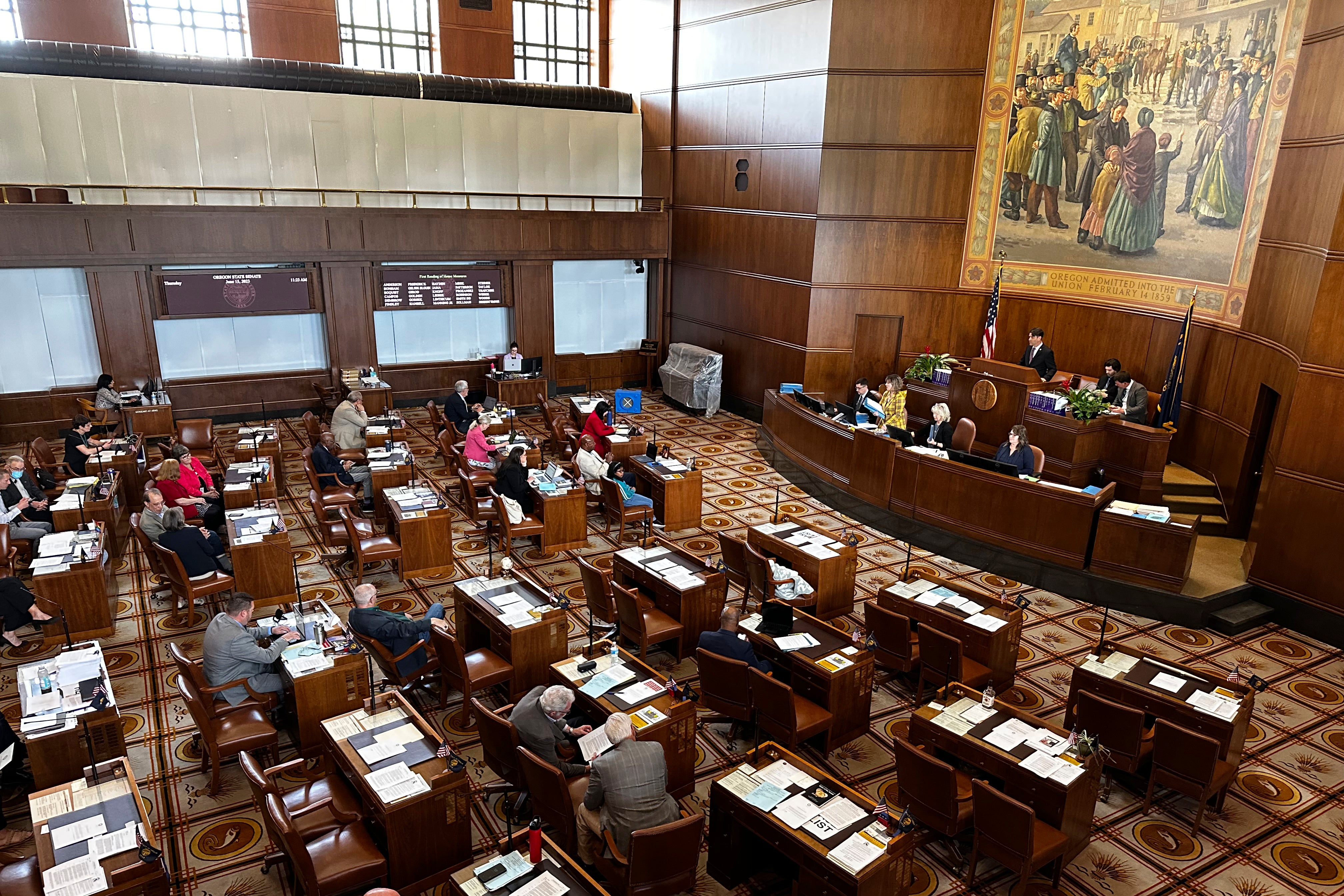Post-GOP walkout, Oregon elections chief says lawmakers with 10 or more absences can't run next term
Oregon's elections chief says the 10 Republican state senators who had more than 10 unexcused absences during a walkout in the most recent legislative session can’t run for reelection in 2024

The 10 Republican state senators in Oregon who racked up more than 10 unexcused absences during a walkout in the most recent legislative session can't run for reelection in 2024, the state’s elections chief said Tuesday.
Oregon Secretary of State LaVonne Griffin-Valade made the announcement in a news release to clear up confusion over how reelection rules would affect those senators. Under Measure 113, which was approved by voters in 2022, lawmakers with more than 10 unexcused absences were supposed to be disqualified from being reelected for the following term. But some Republicans raised questions over the measure's vague wording, sparking confusion over what the consequences of the walkout would be for boycotting senators.
“My decision honors the voters’ intent by enforcing the measure the way it was commonly understood when Oregonians added it to our state constitution,” Griffin-Valade said.
She has directed the Oregon Elections Division to implement an administrative rule to clarify the stance, which she said is consistent with that of the Oregon Department of Justice.
Senate Republicans said they would challenge the rule in court.
“We believe the plain language of Measure 113 allows for members to run again in 2024 elections,” Senate Republican Minority Leader Tim Knopp said in a statement.
After GOP lawmakers in Oregon boycotted the Legislature in 2019, 2020 and 2021, voters last November approved a ballot measure by an almost 70% margin that was supposed to stop walkouts. Lawmakers with 10 or more unexcused absences would be disqualified from being reelected in the next term, according to the measure’s title and summary.
But the text of the measure — which is now part of the state constitution — says disqualification applies to “the term following the election after the member’s current term is completed.” That means, Republicans argue, that boycotters who are up for reelection in 2024 could be candidates despite having over 10 absences because their current terms end in January 2025 — with the disqualification coming for the 2028 election.
Griffin-Valade's office sought to dispel that notion in its Tuesday news release.
“The Secretary found no suggestion prior to enactment – in the voters’ pamphlet, media, or otherwise – that the measure was understood or intended to allow absent legislators to serve an additional term after accumulating too many absences, and then be disqualified the term after that,” the release said.
Courts have found that the text of adopted ballot measures must be interpreted according to voters' intent, the release added.
Senate Republican Minority Leader Tim Knopp was among the 10 GOP senators with more than 10 unexcused absences during the 2023 legislative session, which ended in June after being stalled by the six-week walkout — the longest-ever to grip the Oregon Legislature.
Of those 10 lawmakers, six have only one legislative session left in their terms. One of the six, Bill Hansell, has announced he will retire when his term ends.